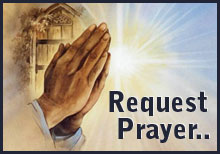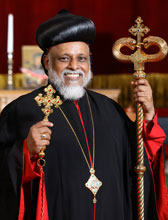Dr. Paulos Mar Gregorios
GREGORIOS OF INDIA
A BRIEF SKETCH OF LIFE OF LATE LAMENTED DR. PAULOS MAR GREGORIOS
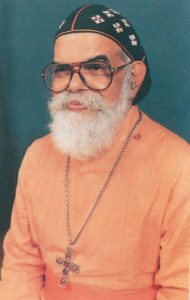
THE MANY FACETS OF THE LIFE AND WORK OF DR. PAULOS MAR GREGORIOS, 1922-1996, POINT TO THE VERSATILITY OF HIS INTERESTS AND RANGE OF HIS CONTRIBUTION.
FIRST METROPOLITAN OF THE DIOCESE OF DELHI; ELDER MEMBER OF THE HOLY SYNOD; PRINICIPAL, THEOLOGICAL SEMINARY, KOTTAYAM; FOUNDER, DELHI ORTHODOX CENTRE.
ARTICULATOR OF THE ORTHODOX FAITH ACROSS THE WORLD; BIBLICAL SCHOLAR AND TEACHER; EXPONENT OF SACRED TRADITIONS; PROMOTER OF UNITY AMONG ORTHODOX CHRISTIANS; ECUMENICAL LEADER DEVOTED TO INTER-FAITH DIALOGUE AND COOPERATION; PRESIDENT, WORLD COUNCIL OF CHURCHES.
SCHOLAR, PHILOSOPHER, AUTHOR, EDUCATIONIST, EDITOR, LINGUIST, PUBLIC SPEAKER, SOCIO-POLITICAL THINKER; LOVER OF CHILDREN AND OF NATURE; ADVOCATE OF WOMEN’S EQUALITY, ENVIRONMENTAL INTEGRITY AND HOLISTIC HEALTH.
CRUSADER AGAINST EXPLOITATION, DISCRIMINATION, NEO-COLONIALISM AND RELIGIOUS-CULTURAL ARROGANCE; ACTIVIST FOR DISARMAMENT, JUSTICE AND PEACE.
LIFE-LONG SEEKER AFTER THE LIGHT OF KNOWLEDGE, TRUTH AND THE TRANSCENDENT SOURCE OF OUR BEING.
Born on August 9, 1922 in an ancient Orthodox Syrian Christian family at Tripunithara in Kerala, young Paul Verghese (former name of Paulos Mar Gregorios) was brought up in the traditional Christian family discipline and close knowledge of Orthodox faith and practice. The young boy was very attached to his mother. However, the sudden onset of a serious and prolonged mental illness of his mother brutally severed their affective ties, and the unusually bright teenager son was thrown into total confusion. His father was a stern school teacher of modest means. The emotional, spiritual and material struggles the boy, eldest son in the family, had to undergo at that time remained with him throughout his life. Despite all the painful circumstance, Paul Verghese got through the school final examinations with high distinction in the princely State of Cochin. One of his bitter disappointments was that his family had no means to send him to college.
Paul Verghese then tried his hand at many things like being a clerk in a transportation and shipping company, a teenager journalist working for a Malayalam daily and so forth. Later he got selected through a competitive examination to the Indian Posts and Telegraphs department and served in several places as telegraphist and postmaster. He was also a trade union activist during that time.
In 1947, through a dramatic incident, recounted in his autobiography Love’s Freedom: the Grand Mystery, he went to Ethiopia as a school teacher. There he learned the Amharic language so well that he could compose an elementary grammar book of that language for students. He remained there until 1950 and then went to the USA to start his college education that he had missed so much. He earned a B.A from Goshen College and then a Bachelor of Divinity degree from Princeton University. Obviously his spiritual, theological and philosophical interests were kept alive amidst all the trying circumstances.
In 1954 Paul Verghese returned to India and started working as a lecturer in Christian faith and theology at the Union Christian College, Alwaye and the Fellowship House. Soon he was elected General Secretary of the Orthodox Student Conference of India.
In 1956, he went back to Ethiopia, this time invited as special advisor to Emperor Haile Selassie and as his liaison officer with India. He was treated almost like a prince in the royal house. Although he was critical of Selassie’s policies, he gained the confidence of the Emperor.
Finally, renouncing all the royal privileges, he went to Yale University to pursue his theological studies. From Yale he continued his academic journey to Oxford where he registered for a D.Phil. course. Although Oxford disappointed him as a staid, dogmatic and insular place, he gratefully remembers great teachers like Michael Polanyi who initiated him to some of the philosophical problems of human knowing and certainty. He also critically reacted to the then known theologians like Ian Ramsey and Henry Chadwick.
Paul Verghese was invited to join the staff of the World Council of Churches in Geneva by its first General Secretary Dr. Visser’t Hooft. He declined it, though eventually he joined as its Associate General Secretary and as Director of the Division of Ecumenical Action (1962-1967).
In Early Service of the Church
By now, Paul Verghese had already received ordination as a priest. The young Indian Orthodox priest made a great impression as a speaker and Bible study leader on the World Assembly of the WCC at New Delhi in 1961.
In 1967, he became Principal of Orthodox Theological Seminary on the invitation of his mother Church in Kerala. Thus Fr. Paul Verghese began to put into practice his vision of theological education and pastoral training. He inspired several generations of priests and bishops.
In 1975, Fr. Paul Verghese was consecrated bishop and he became the first Orthodox Bishop of the Delhi Diocese. Delhi, the national capital thus became the arena of his manifold activities—intellectual, social, pastoral and cultural. Until his demise in 1996, he simultaneously and successfully held the positions of the Principal of Orthodox Seminary in Kerala and that of the Metropolitan of Delhi.
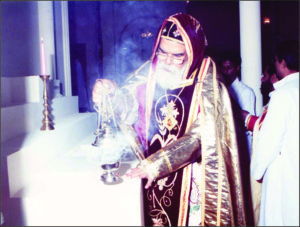
Mar Gregorios was a powerful speaker. He was most at ease in the English language. Clarity of expression was utmost in his speeches. It enabled his listeners to understand well even as he explained very difficult ideas. In the celebrated conference on Science, Faith and Future held at the Massachusetts Institute of Technology (MIT) in 1979, Mar Gregorios moderated the assembly of some 1000 top scientists, theologians and philosophers. Everybody was thrilled to experience the felicity of his spoken word even when he dealt with complex issues in the philosophy of science and religion.
Mar Gregorios always maintained a holistic approach. He could easily see the total picture and the interconnections of various parts in it. This added to the clarity of his understanding and always gave new insights to the listeners
He also had a versatile mind. Although his basic academic training was in theology and philosophy, he could easily cut across the borders of various disciplines and gather insights from current research in both physical and social sciences as well as from ideological debates. Those who study his works are sometimes confounded by his amazing interest and understanding.
To be sure, Mar Gregorios was a committed thinker and speaker and not an armchair philosopher. His passionate advocacy for justice to the poor, the Adivasis and Dalits, and his firm stand against western domination sometimes created powerful enemies for him. In the Canberra assembly of the WCC in 1991, he challenged in moving words the then Australian prime minister on stage regarding the Australian government’s policy towards the Aborigines. While the audience of some 3000 people gave a standing ovation to the words of Mar Gregorios, several leaders of the western world were blushing. But that was almost the end of the leadership of Mar Gregorios in the West-dominated ecumenical movement and the WCC!
Influences and Inspirations
As a theologian and spiritual guide, Mar Gregorios was deeply influential in the lives of many including non-Christians, Marxists, artists and academics. He himself drew his inspiration from the ideas of the 4th century philosopher-theologian St. Gregory of Nyssa. The doctoral dissertation of Paulos Mar Gregorios was on ‘God-Word-Man Relationship’, in Gregory of Nyssa. He wrote his book Cosmic Man: The Divine Presence out of this research, and considers it as his best work. Mar Gregorios was well-known for his Bible studies which always brought in refreshingly new insights.
Paulos Mar Gregorios was deeply convinced about the significance and wealth of Eastern Orthodox traditions. Since Christianity often identified with the West, and the Western world with both its Roman Catholic and Protestant heritage exercised hegemony over the world in the second millennium of the Common Era, the Eastern tradition, the authentic and original Christian tradition was largely eclipsed. In the 20th century, Mar Gregorios was an ardent advocate in the West for the sidetracked Orthodox tradition. He was deeply loved by the Eastern Orthodox Church—Greeks, Russians and East Europeans as well as by the Oriental Orthodox people-Coptic, Syrian, Ethiopean, Armenian and Indian—for his articulate and persuasive position in this regard. His Indian Orthodox upbringing and his vast erudition and direct experience of the Christian world enabled him in this task.
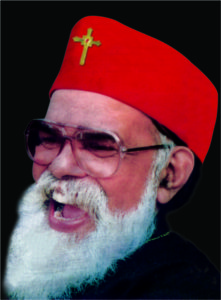
Mar Gregorios qualifies his own Christian vision of the world as “sacramental humanism.” His understanding of reality is firmly rooted in the incarnation of God in Christ. He believed that, “the destiny of man is to be like God in every respect except that of being a non-creature; that is, God is the source of his own being but man’s being will always be derived from God.” The human vocation on earth and beyond consists in humanity’s total participation in God’s love, wisdom, power and holiness.
During the Cold War period, Mar Gregorios was an active leader of the peace and the nuclear disarmament movement. He travelled often for various peace meetings in the Soviet Union where he was well-respected as a convinced spokesman for a new world order based on justice, peace and reconciliation. He personally challenged some of the dogmatic leaders, and was delighted to see new openings and more freedom in the Socialist world. But he never gave in to the seductive logic of the market economy and was staunchly critical of the Western economic and political supremacy.
The idea of justice propagated by Mar Gregorios was deeply rooted in the notion of the Kingdom of God and its justice taught by Jesus Christ. So he did not subscribe to any human ideology in an absolute manner. He always said, ‘God alone is infallible’, and was deeply aware of the ambiguity of all human claims of truth and justice.
Mar Gregorios was profoundly committed to inter-faith dialogue. His deep appreciation for the Indian spiritual and philosophical heritage took him to fruitful studies of the Advaita Vedanta of Sri Sankara, and Buddhist and Jain thoughts. His well-known work Enlightenment East and West was based on the Buddhist idea of enlightenment as an authentically Indian/Asian one. He proposed it as a genuine Indian basis for our nation that has borrowed ‘the secular’ concept in its constitution from the European Enlightenment movement. The Buddhist enlightenment accepts the values of transcendence and rationality while the Western enlightenment rejects transcendence, and thus distorts our concept of the secular.
Mar Gregorios in his autobiography says that he “grew up as a child with fraternal feelings for people of other religions.” Later in his adult life, he enunciated two principals for dialogue with people of other faiths: the first was the principle of maximum transparency. No hidden motives to convert the other. Love of Christ for all humanity must be the propelling motive. Motives like affirmation of, and concern for the unity of humanity and the need for pluralistic and harmonistic communities can follow from this principle of transparency. Second, no other religion should claim superiority over others in inter-faith dialogue. Respectful listening and learning from each other is the standard since all depend on God’s grace and mercy.
Gregorian Vision
Mar Gregorios always expressed his uncompromising trust that the created order is maintained by God’s will and love. The divine will is always good and there is no trace of evil in it. So there is no reason for us to be daunted by evil or stymied by the fear of evil.
He consistently demonstrated an amazing openness to learning. “I need to learn from all, and have indeed learned from many.” He denounced what he called ‘the will not to know’ as a manifestation of human hubris. He says his “major liberation in life has been from thinking that the Western way of thinking with its specific categories and modalities is the only way to think and to know.”
He was convinced that his own Eastern Orthodox Christian tradition has confirmed the insights that he got from other religions, like for example, the principle of Advaita, that there is no creation other than God, or outside God; the Anekantavada of Jains which considers all truth as conditional, relative or qualified; and the Buddhist deconstruction of all epistemology. He once said “I have learned much from Jews and Arabs, from Sikhs and Zoroastrians, from Adivasis and Aborgines, from Africans and from the indigenous people of America. I hope I am still learning and will continue to do so until the end.”
Sometimes Misunderstood
The long association of Mar Gregorios with Communist intellectuals in India and the Soviet Union was misunderstood by some people. In Kerala, some of the leading Communist theoreticians like P. Govinda Pillai openly acknowledge their great debt to Mar Gregorios for a fresh understanding of the socialist God. A widely well respected former Chief Minister, C. Achuta Menon was sincerely devoted to him for his knowledge of the Marxist-Leninist theories and his compassionate openness to the cause of the poor and the disinherited. Mar Gregorios says that he “learned a lot from the Communists, that most avowedly atheistic wing of European enlightenment, from the weaknesses and failures as much as from their apparent successes.” He cultivated the Communists for two reasons: first, their social goals were more compatible with the Christian ideas of a just society than that of liberalism and its capitalist ideology. Second, the Western Christians, especially the Roman Catholic Church were vilifying everything the Communists were doing, without any sensitivity to some of the positive values of Socialist-Communist ideology. Mar Gregorios however, was disappointed that most Communists became dogmatic, corrupt and power hungry like some of the powerful Churches, and dug their own graves.
The Sunset of his Life
The incomplete autobiography of Mar Gregorios is titled, Love’s Freedom: The Grand Mystery. The words were crucial for the life and thought of Mar Gregorios. He saw human freedom as a greatest value as it is God’s own attribute. He endorsed all manifestations of freedom and dignity of human beings – men, women and children. Love is a sustaining power of the universe and he affirms St. Johns words – God is Love. His sense of mystery at the heart of creation prevailed over his awe for the mastery of the world exercised by human science and technology today. In his own life experience, he found ‘suffering as key to the mystery,’ as he puts it in his autobiography.
Mar Gregorios travelled from Oxford to Cologne on 29th May, 1993 in order to participate in a symposium on the ‘Foundations of High-energy Physics’ at the University of Cologne. He developed a stroke during the flight, and was partially paralysed. Since then, he remained physically debilitated until his end in Delhi on 24th November, 1996. But he continued his spiritual and intellectual journey with great determination and clarity of mind until the very end.
The life of the great visionary Paulos Mar Gregorios is summarised in his own words, “all uniting love with creative freedom in the Spirit as the great mystery at the heart of reality – one man’s vision.”
On the occasion of his 100th Birth Anniversary, World Council of Churches commemorated him through an International Seminar. The following is the Inaugural Address by Professor Dr Isabel Apawo Phiri, Deputy General Secretary in Public Witness and Diakonia, World Council of Churches:
WCC commemorating Dr. Paulos Mar Gregorios on his Birth Centenary


